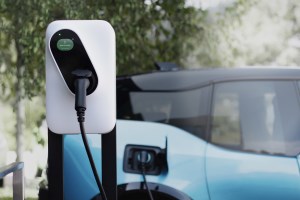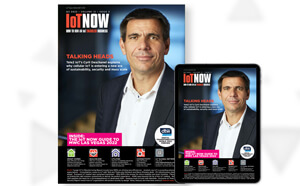Vienna, 2 June 2022 – RIDDLE&CODE is partnering with Influx Technology LTD to develop its Drive&Stake stack. This collaboration focuses on the further evolution of Drive&Stake hardware to transform vehicles into autonomous agents in a new era of mobility.
RIDDLE&CODE and Influx Technology are working together to build a powerful and flexible toolchain for original equipment manufacturer (OEM) developers in the automotive ACES (Automated, Connected, Electric and Shared) space to prototype peer-to-peer (P2P) blockchain-based solutions.
With three decades of experience and expertise in developing business-to-business (B2B) automotive embedded systems and deep in-vehicle communication protocol, Influx Technology will help RIDDLE&CODE create the next generation of Drive&Stake hardware.
“The goal is to manufacture a toolchain that reduces complexity and simplifies experimentation, enabling a more significant focus on value-added business models whilst ensuring vehicle safety and security,” says Steve Ratheram, senior R&D engineer / automotive embedded at RIDDLE&CODE.
“Bringing together the automotive industry experience of Influx and the industrial Web3.0 vision of RIDDLE&CODE,” says Minh Cao, director of mobility at RIDDLE&CODE, “the consortium engineers industry-grade hardware connected to a banking grade distributed ledger technology (DLT) infrastructure that finally transforms any vehicle into an autonomous economic agent and its drivers into data entrepreneurs.”
The Drive&Stake consortium continues to realise its goal of creating decentralised and secure technologies, focusing on blockchain and cryptography. The D&S stack comprises reference hardware that connects vehicle embedded systems data to a secure exchange-to-exchange (E2E) data & token management system.
In addition to the new hardware, the Drive&Stake Consortium will lead to the following:
- The development of new data economies and vehicle lifecycle revenue streams
- The creation of secure provenance of trustful data
- The development of collaborative and decentralised data-driven business models
- The sharing of data and relevant information between competitors without revealing industry secrets
- Benefit from the network growth through a token-economical business model that governs and grows the network using incentives
- Gain access to the required backend technology stack to enable the rollout of all business processes on the platform in a regulatory compliant way
Comment on this article below or via Twitter: @IoTNow_OR @jcIoTnow






